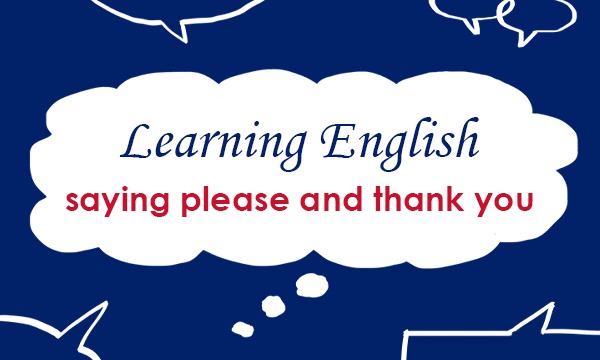
When asking for something from someone, use please.
Two kilos of oranges, please.
Could you give these to Anders, please?
Please could I borrow this chair?
To say that you would like something that someone has offered you, use Yes, please.
‘Would you like some more coffee?’ ‘Yes, please.’
‘Can I help you with that?’ ‘Oh, yes, please.’
To say that you would not like something that someone has offered you, use No, thank you. or No, thanks.
‘Would you like a biscuit?’ ‘No thank you.’
‘A coffee?’ ‘No, thanks. I’d better not.’
To thank someone, use Thank you or Thanks.
Thank you for all your help, Zalika.
‘Here’s a little birthday present.’ ‘Thank you!’
‘I love your new haircut.’ ‘Thanks, Juliana.’
Hey, thanks for coming along today.
To make Thank you or Thanks stronger, use very much or so much after it.
Thank you very much for all those books you gave us for the children.
Thanks so much for the flowers, they are really pretty.
People often say something extra after saying thank you or thanks to make it stronger. For example, they often say something like I appreciate it. or It was very kind of you.
Thanks for helping out at the weekend, Anneli. I really appreciate it.
To accept someone’s thanks, use You’re welcome.
‘Thank you very much for all your help, John. We do appreciate it.’ ‘You’re welcome.’
‘Thanks for dinner last night. It was really lovely.’ ‘You’re welcome. Any time.’
Another way of accepting someone’s thanks is to use It’s my pleasure. or My pleasure. This is a slightly more formal way of accepting thanks.
‘Thank you for the lovely gifts.’ ‘It’s my pleasure.’
‘Thank you, Ben – you’ve been a great help.’ ‘My pleasure.’
To accept thanks from a person that you know, use That’s all right.
‘Thanks for your help, mate.’ ‘That’s all right.’
‘A present for me? Thanks, Patrick.’ ‘That’s all right.’
Another way of accepting thanks from a person that you know is to use No problem., No worries. or Not at all.
‘Thanks for the party invitation.’ ‘No problem.’
‘Thanks for walking the dog this morning – it was a great help.’ ‘No worries. She was great!’
‘Thanks for looking after the children on Saturday, Lucia.‘ ‘Not at all.’
Come back for more blogs on using English in everyday situations: https://blog.collinsdictionary.com/language-learners/learning-english/
All opinions expressed on this blog are those of the individual writers, and do not necessarily reflect the opinions or policies of Collins, or its parent company, HarperCollins.



